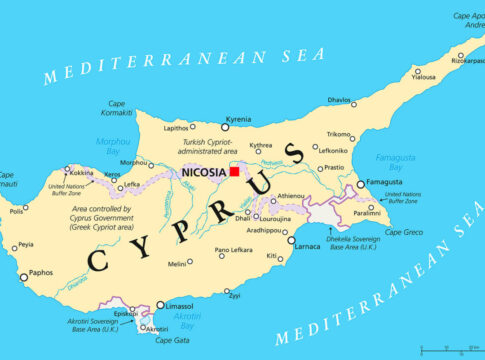In a significant development for the Eastern Mediterranean energy landscape, President Nikos Christodoulides has revealed that energy companies from the Persian Gulf are eyeing opportunities to explore natural gas reserves off the southern coast of Cyprus. This announcement, made during a prestigious energy conference in Nicosia, underscores the growing international interest in Cyprus’ exclusive economic zone (EEZ).
Cyprus, a strategic Mediterranean island, has divided its EEZ into 13 exploration blocks, opening the doors to potential collaborations with major global players. “We are in early-stage discussions with several unnamed companies,” President Christodoulides noted, hinting at fruitful collaborations with energy giants like Italy’s Eni, France’s Total, ExxonMobil, and Chevron, who already maintain a strong foothold in the area.
Among these companies, ExxonMobil and its partner Qatar Energy hold concessions in two blocks. Chevron collaborates with Shell for one, while a powerful consortium of Eni and Total commands seven blocks. This robust participation from leading energy corporations signals strong confidence in Cyprus’ untapped hydrocarbon potential, alongside underlying political and diplomatic considerations.
Incorporating insights from industry experts, Dr. Elena Kouri of the Energy Institute at the University of Nicosia remarked, “Cyprus’ EEZ is emerging as a focal point for energy security in the region. The interest from Gulf states could further bolster geopolitical alliances and economic growth.”
Moreover, the discovery of at least five substantial natural gas deposits within Cypriot waters adds allure to these ventures. The Eni-Total consortium has unearthed three deposits, while ExxonMobil and Chevron have identified others, with Chevron’s find alone holding an estimated 4.2 trillion cubic feet of gas. The development plan for one of Eni-Total’s fields, boasting approximately 2.5 trillion cubic feet, is on the verge of completion, promising a new chapter in Cyprus’ energy narrative.
In a parallel stride towards energy advancement, Cyprus is progressing on constructing a €1.9 billion undersea electricity cable connecting to Greece. This venture, partially funded by a €657 million European Union grant, aims to reduce electricity costs and eliminate the island’s energy isolation. Notably, President Christodoulides highlighted ongoing discussions with the United Arab Emirates for joint investment in this transformative project.
The EU’s backing aligns with its strategic objective to achieve energy price parity across member states by 2030, a goal reiterated by Christodoulides. As Cyprus strengthens its role in the regional energy market, the island could potentially serve as a bridge between Europe and the energy-rich Gulf, fostering economic ties and enhancing energy security.


